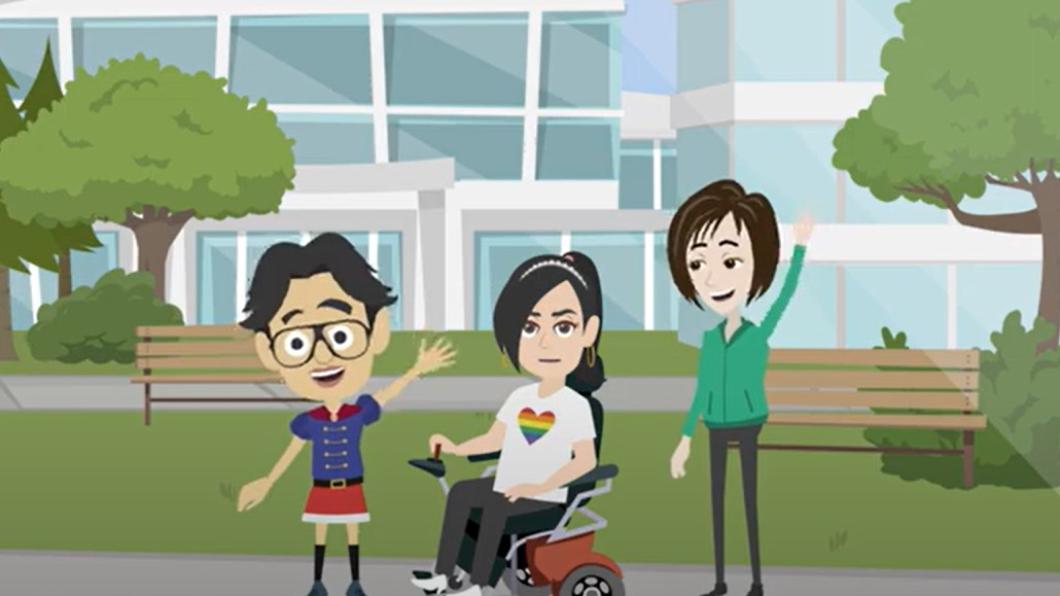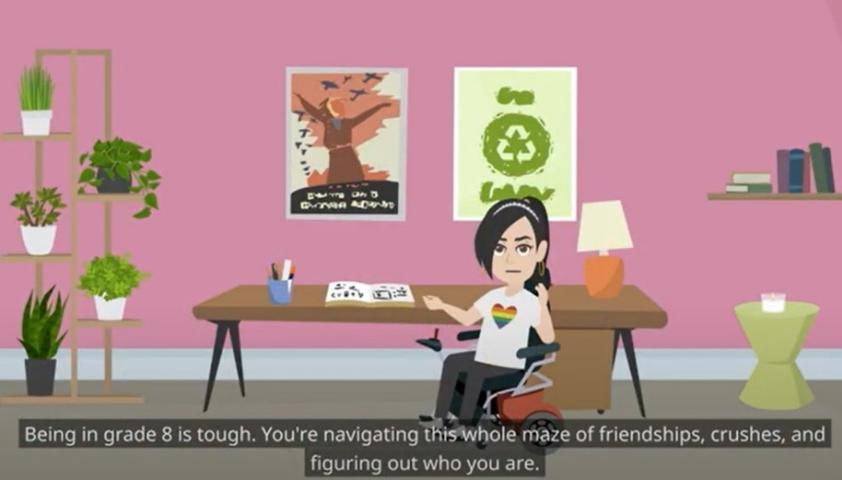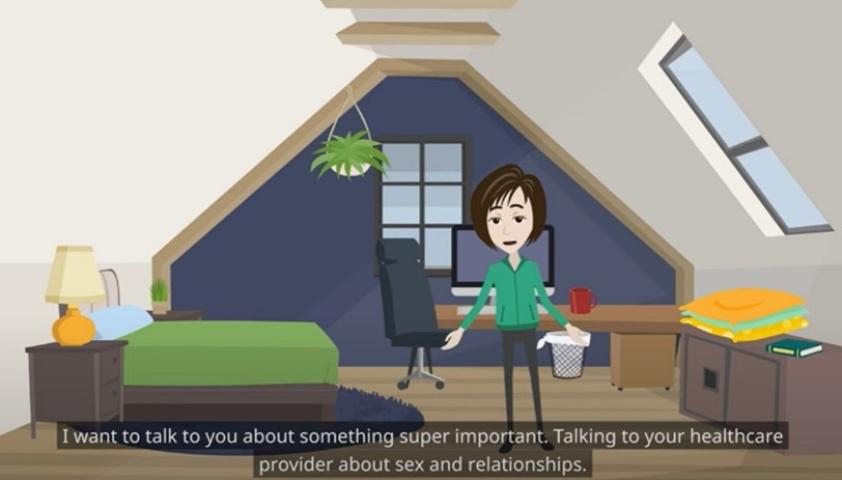
New videos created by kids with disabilities help other youth navigate a complex social world as they start a new school year
Starting a new school year can be challenging for kids both with and without disabilities when it comes to making new friends or getting the courage to talk to someone you like.
Cameron, Gavi and Emily know this first-hand. That’s why these teens teamed up with researchers at Holland Bloorview Kids Rehabilitation Hospital to create animated videos for youth with disabilities to help them navigate relationships and inclusion at school.

In her video, Gavi Engel-Yan, a 13-year-old student who is starting Grade 9 this fall at a new school, wants everyone to know that inclusion matters in school. She has nemaline myopathy, a condition that makes her muscles weaker, so she uses a power wheelchair, has a trach that helps her breathe, and has a speech impairment. Because of this, people who don’t know her well may have a hard time understanding her. She advocates for herself by speaking about her experiences as a disabled person. She has a lot to say and wants to be part of conversations to share her thoughts and ideas. She loves painting, hanging out with friends and plays volt hockey, an accessible form of hockey where a player sits in an electrically powered sled with a t-shaped blade to carry and shoot the ball.
“It’s hard to start conversations with people I don’t know,” says Gavi. “I feel awkward because they won’t understand me at first so I have to type [what I am saying]. This video is about interacting with someone with a speech impairment or other physical disability. It shows people how it makes me feel when people exclude me from conversations. My message to the world is don’t underestimate disabled people and definitely don’t make assumptions about who we are. Instead, talk to us and get to know us.”

In his video, Cameron Stewart, a 17-year-old teen who is heading off to Sarnia this fall to start college to study Early Childhood Education, gives helpful tips on how to talk to someone you like at school, especially if you are shy. Cameron, who has been diagnosed with Down syndrome, loves all kinds of sports as well as music and dance. He’s had a crush on a friend that he's known since junior kindergarten, and wanted to create this video to help other teens navigate relationships that can be both sexual or platonic.
This exuberant and confident student has a simple message for his peers when building healthy relationships; whether it’s talking to someone you’re attracted to, or making new friends: “Take your best shot – don’t be afraid to show who you are. Be yourself and go for it [DRAFT].”
His mom, Susan Chen, felt it was important for her son to contribute his lived experience to this project as a way to combat the stigmas of talking about disability and sexuality.
“I found that there wasn’t enough resources available for people with special needs and building relationships that are platonic or sexual. Through this project, Cameron has been able to develop relationship skills he will build upon throughout his lifetime. The video is a great reflection of his lived experiences as a teen living with a disability.”

In addition to these two videos co-developed by the teens and the ProFILE Lab research team at the hospital’s Bloorview Research Institute, Emily, a student who is a member of the project’s junior youth advisory council, shares tips on how to speak to a health-care provider about disability, sexuality and relationships in this animated video.
“Sexuality and relationships are a typical part of growing up, yet kids with disabilities often aren’t included in conversations about them,” says Dr. Amy McPherson, a senior scientist who heads the ProFILE Lab. “It was critical to our research team that the youth on the project told us what was most important to them, rather than us assuming. The result is three very different, but equally powerful, videos about the importance of inclusion when we talk about sexuality in its many forms.”
Parents and caregivers will soon be able to download handouts on how to help their youth navigate their questions on relationships, sexuality and friendships.
The videos and handouts are part of the ProFILE (Promoting a Future of Inclusive Healthy Lifestyles for Everyone) Lab’s Let’s Talk Disability and Sex hub, which houses a range of free resources that help youth with disabilities, parents and health-care providers have conversations about sexuality.